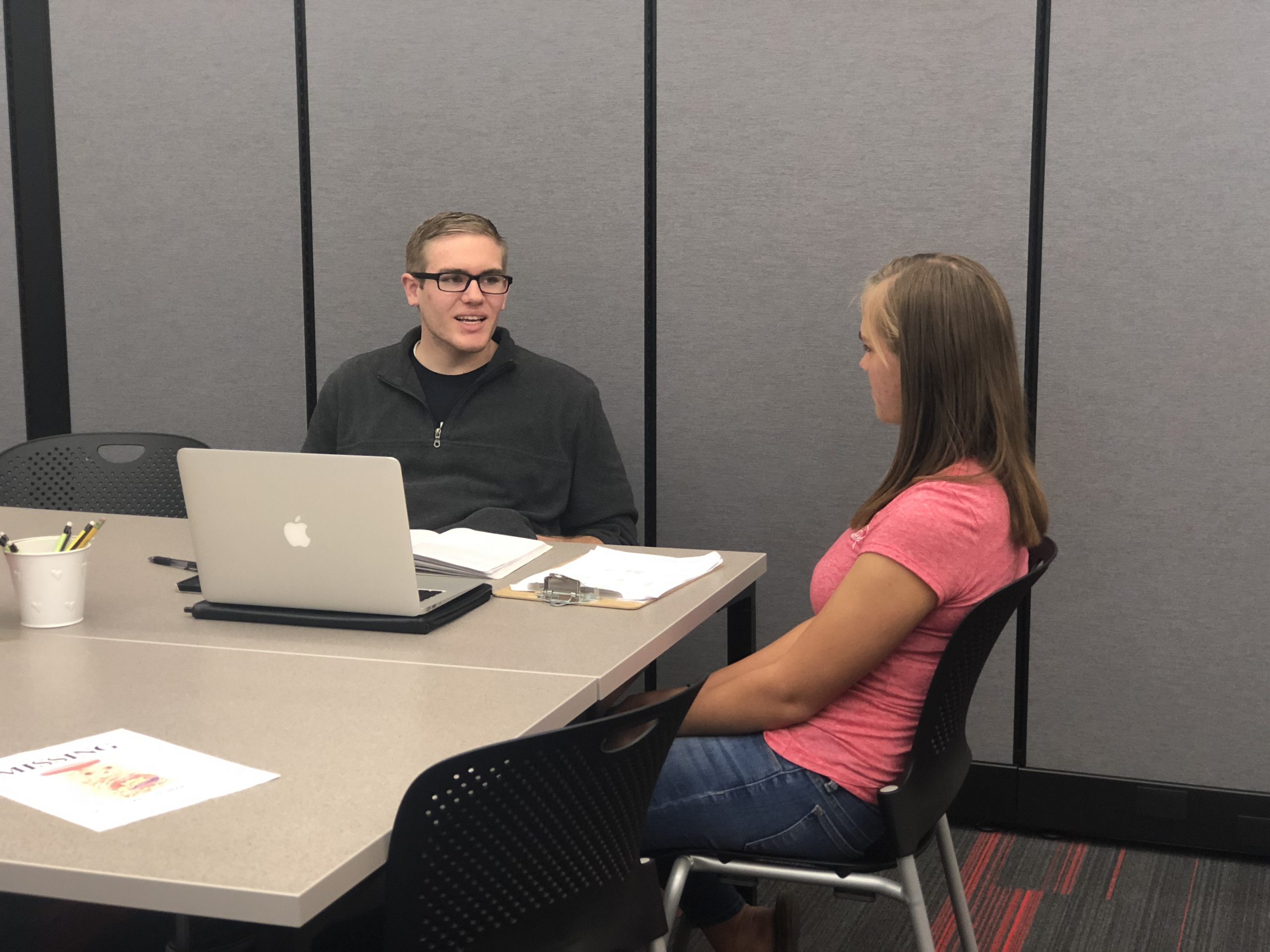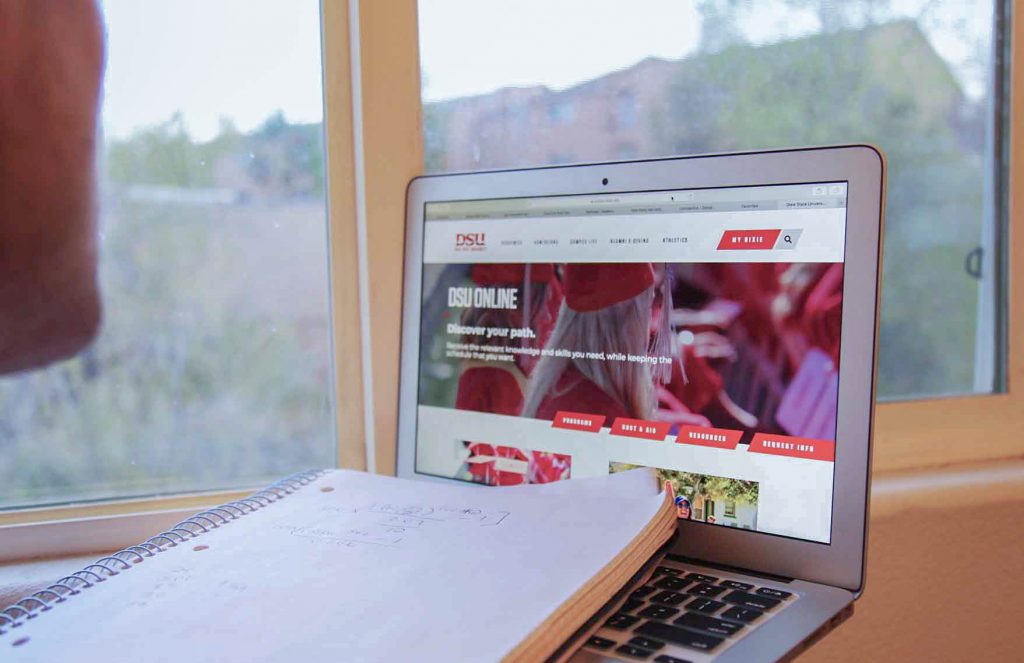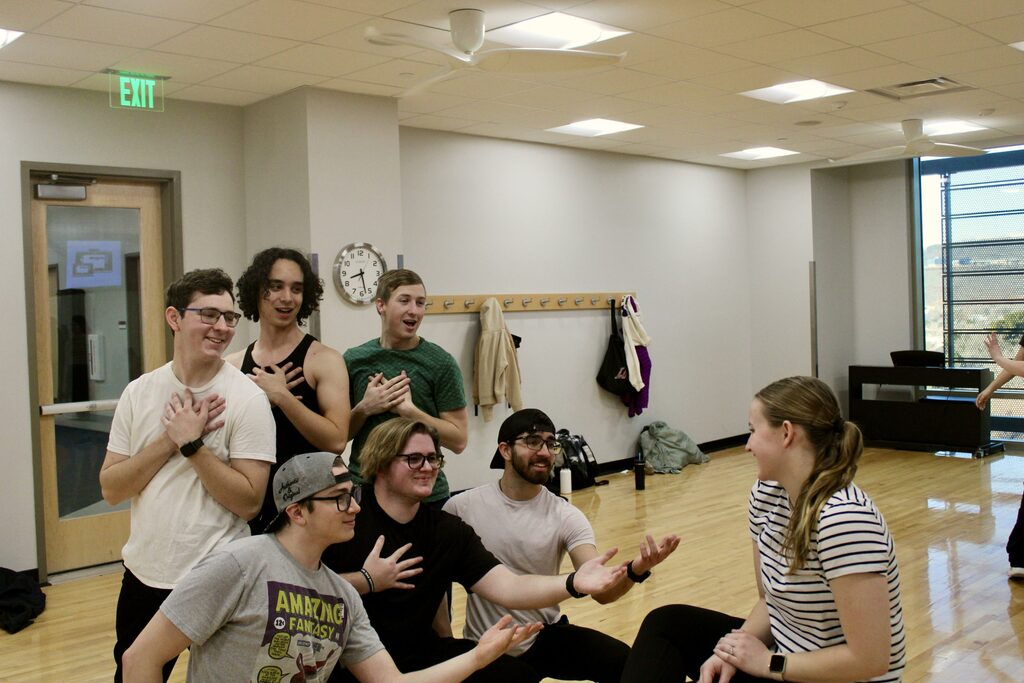For freshmen, college can be overwhelming and finding answers can seem like an impossible feat, but the Dixie State University Student Success Center is home to two resources helping to bridge the gap for students struggling to thrive in a university environment.
Located in the Val A. Browning Learning Resource Center, the Student Success Center houses both the Student Success, or Structured Enrollment, and Peer Coach programs. Jamie Kearra, assistant director of Structured Enrollment, said the Student Success Program is a mandatory first-and-second semester class for potentially at-risk freshmen, or students with index scores of 45 or lower, which are calculated using high school GPA and admissions test scores.
The class helps students who struggled or weren’t involved in high school see the importance of and become motivated in college, she said. Throughout each course, Kearra said not only are students taught basic study skills and time management but they are also visited by representatives from the Health and Counseling Center, Academic Advisement Center, Career Services, Strengthsfinder and the Multicultural and Inclusion Center.
“We really just try to help them navigate college [and] hook them up with resources,” Kearra said.
The courses are broken down into “Study Skills and Student Success” and “Career and Life Skills.” Within those courses, students are connected with one of two student success coaches, full-time staff meant to help ask and answer questions to better help students be proactive, Kearra said.
“We just try to make this a place where they can study or hang out or ask questions,” Kearra said.
She said student success coaches are meant to help students get accustomed to life in college, but they are also there to ask the tough questions.
“There’s an element of being kind and understanding, but also raising the bar,” Kearra said. “[Student success coaches are asking questions] like ‘what do you really want?’ and ‘are you doing what you need to do to get there?’”
Student success coaches are also there to help students avoid the almost-inevitable and frustrating goose chase around campus when trying to find the right person to answer particular questions, she said.
“If someone comes in and they need help with financial aid, we are going to walk them over to financial aid and we are going to learn a little something about financial aid so the next time a student comes in… they can get their question answered here,” Kearra said.
There are currently around 300 students enrolled in the Structured Enrollment Program, and each student success coach has around 150 students, she said. Kearra said the coaches are called on to “put students into action” and help their students find solutions to academic and everyday problems.
For freshmen students who are looking for a little help but don’t fall into the category of being at risk, peer mentors are available to help. Jay Sorensen, assistant director of first year programs, said the main focus of the Peer Coach Program is helping first-year freshmen adjust to life in college.
“Our primary goal is to make sure students have a smooth transition as they integrate into life at DSU,” Sorensen said. “Our secondary goal is to be what we call an early alert initiative… We try to find the problems that our freshmen students have before they become a catastrophe.”
Students of all credit grade levels are welcome, he said, despite their focus on first-year students.
The program was founded on the use of fellow students who become peer coaches, he said. Whereas the student success coaches are full-time employees who only work with freshmen in the Structured Enrollment Program, Sorensen said, peer coaches are student employees whose principle goal is to help freshmen but are willing to help students of any credit grade level.
“We strive to help students simplify the process, and then get maximum results,” Sorensen said.
He said helping students starts with assigning a peer coach who can meet with each student one-on-one. Peer coaches are able to get to know students while offering solutions and helping students work on problems “the same way a mechanic would work on your car,” Sorensen said.
He said students hoping to get involved in the Peer Coach Program as a peer coach should have a minimum GPA of 2.80, but perfection is not preferred.
“I feel like you can’t raise someone up unless you’re standing on higher ground yourself,” Sorensen said. “It’s not about being perfect. I want people who’ve had to struggle to earn the grades that they have.”
Sorensen said he believes struggling students want to see someone who struggled but succeeded because they are able to relate to that experience more than the experience of a 4.00 student.
“You want to work with someone who you feel had to grind to get the grade,” Sorensen said.
Peer Coach Shandon Lewis, a freshman music education major from St. George, said a friend and past peer coach introduced him to the program, but his personal experiences are what allows him to help others.
“It’s much easier for someone to talk more openly to someone that’s a peer that they know is also going through school at the same time,” Lewis said. “For example, my first semester I remember walking off campus thinking ‘I really wish there was a student here I [could] talk to.’”
He said he enjoys helping freshmen on campus find someone to relate and talk to when they have questions.
“The first semester is kind of a crazy time in life,” Lewis said. “We want to make sure that every freshman has access to all [of] the resources [available] and make sure they know they can go to somebody on campus to ask questions [and] to sort things out during this transition.”
One of the biggest mistakes freshmen make is thinking they’re alone in their struggle, Lewis said.
“We come into college and we think ‘I need to know what I’m doing,’” Lewis said. “‘I need to know what’s going on. I need to know exactly what my plan is.’ And [we think] everyone else knows, and so [we’re] behind everybody, but really everybody is here in the same boat and everybody wants to help you.”
Kearra said the best advice she can give to freshmen is to be involved.
“I think the simplest things are going to make you successful,” Kearra said. “Ask questions, show up to class, do your work. If you do those things, the people here will get you where you need to go.”




